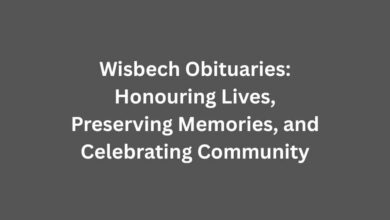Nuala O’Loan: A Voice of Integrity, Justice, and Courage in Northern Ireland

When discussing modern figures of public accountability, Nuala O’Loan stands out as an individual who dedicated her life to truth, justice, and reconciliation in a region marked by conflict and complexity. Her work as the first Police Ombudsman for Northern Ireland placed her at the centre of some of the most sensitive and emotionally laden investigations in the aftermath of decades of conflict known as the Troubles. She demonstrated conviction, bravery, and unwavering commitment to fairness, even when facing criticism, political pressure, and personal risk.
Early Life and Personal Background
Nuala Patricia O’Loan was born on 20 December 1951 in Hertfordshire, England. Though born outside Northern Ireland, her life would later become deeply woven into the fabric of its social and political transformation. She studied law at King’s College London, graduating in 1973, a foundation that shaped her career in justice and public service.
In the late 1970s, she experienced a life-altering tragedy. While pregnant, she was severely injured in an Irish Republican Army bombing, resulting in the loss of her unborn child. This event left a permanent emotional imprint, shaping her deeply held dedication to protecting life and advocating for accountability. Instead of responding to trauma with bitterness, she transformed pain into a determination to prevent violence and uphold justice. This personal experience placed her among those who understood, both intellectually and emotionally, the human cost of conflict in Northern Ireland.
Academic and Professional Beginnings
Before becoming a public figure, Nuala O’Loan spent many years in academia. She lectured in law at the University of Ulster, eventually holding the Jean Monnet Chair in European Law. She was respected for her clarity of thought, steady leadership, and genuine concern for students and colleagues.
Outside academic life, she held roles in consumer protection and public committees across health, social justice, and policing oversight. Each responsibility helped develop her understanding of the structural challenges facing public institutions.
This combination of academic insight, personal resilience, and public commitment made her uniquely prepared for what would become her defining professional role.
Becoming the First Police Ombudsman for Northern Ireland
In 1999, Nuala O’Loan was appointed as the first Police Ombudsman for Northern Ireland, a position created as part of the reform process following the Good Friday Agreement. The Ombudsman’s Office was established to rebuild public trust in policing, especially among communities that felt marginalised or historically mistreated.
This was no ordinary job. The Ombudsman had full authority to investigate complaints against police, including allegations of misconduct and collusion with paramilitary groups. Her responsibilities placed her in a role where she was required to examine deep-rooted tensions, institutional practices, and long-standing public mistrust.
Many doubted the possibility of impartial oversight in such a divided environment. Yet Nuala O’Loan approached the role with neutrality, transparency, and firm dedication to justice. She worked tirelessly to ensure that every investigation, no matter how politically sensitive, was carried out thoroughly and without fear or favour.
The Omagh Bombing Investigation
One of the most significant investigations during her tenure concerned the 1998 Omagh bombing, one of the deadliest attacks of the Troubles. Her report, released in 2001, concluded that there were serious failings in how the investigation had been handled by police at the time.
This conclusion was controversial and met with strong opposition from senior officials. Yet Nuala O’Loan remained steadfast. She insisted that her findings were not an attack on police officers as individuals, but a necessary examination of systemic failures. Her willingness to speak uncomfortable truths demonstrated moral courage and reinforced the purpose of independent oversight.
Operation Ballast and Collusion Allegations
Another landmark investigation led by her office was Operation Ballast in 2007. The findings concluded that there had been collusion between police officers and paramilitary groups in certain cases, and that failures in policing practices had put lives at risk.
The report shook public consciousness. For some, it confirmed what they had long suspected. For others, it questioned the legacy of policing institutions they respected. For Nuala O’Loan, however, the investigation was not about assigning blame; it was about accountability, honesty, and learning from the past to create a safer, more just society.
Her work established the Ombudsman’s Office as a credible and independent authority, and it helped pave the way for reforms aimed at ensuring greater accountability in policing.
Recognition and Service in the House of Lords
In recognition of her contributions, Nuala O’Loan was made a Dame Commander of the Order of the British Empire in 2007. Two years later, she was appointed a life peer, becoming Baroness O’Loan in the House of Lords, where she continues to serve as a crossbench member, advocating on issues related to human rights, peace, and public accountability.
Her influence extends beyond the United Kingdom. She has served in international peacebuilding roles, including as Special Envoy to East Timor, advising on policing reform and human rights protections.
Personal Qualities and Leadership Style
One of the most admirable qualities associated with Nuala O’Loan is her calm, composed leadership style. She does not pursue attention or notoriety. Instead, her work reflects clarity, empathy, and devotion to the ethical responsibilities of public office.
Her leadership is not loud. It is steady.
Her impact is not temporary. It is lasting.
She demonstrates that strength is not force; it is integrity maintained through pressure.
Legacy of Trust and Truth
The legacy of Nuala O’Loan lies in the space she opened for dialogue, justice, and accountability. In societies emerging from conflict, trust does not rebuild itself; it must be earned. Her work helped to form the basis for that trust.
Whether in investigating the past or shaping policies for the future, she has consistently stood for the principle that institutions must serve the public honestly, fairly, and transparently. Her legacy continues to shape the evolution of policing oversight not only in Northern Ireland, but in public accountability models worldwide.
Conclusion
Nuala O’Loan represents a rare combination of personal resilience, professional integrity, and moral courage. Her work transformed the landscape of policing accountability in Northern Ireland, giving voice to victims, challenging systems when necessary, and encouraging institutions to change for the better. She continues to inspire leaders, policymakers, and communities seeking reconciliation and truth.
Her life teaches that justice is not simply a legal obligation; it is a human responsibility. Her example proves that one determined individual can play a meaningful role in the healing of a society.



